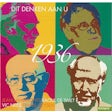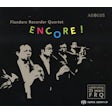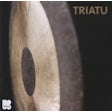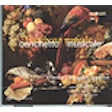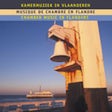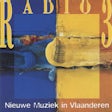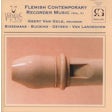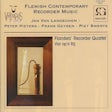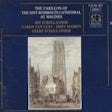Frans Geysen

geysen
Frans Geysen was born on 29 July 1936 in Oostham (in the province of Limburg). He studied organ and music education at the Lemmens Institute in Leuven until 1960, at which time he furthered his studies in music history with J.L. Broeckx and fugue with J. Mestdagh at the conservatories of Ghent and Antwerp respectively. He taught harmony and advanced music analysis at the Lemmens Institute from 1962 to 1999 and at the Royal Conservatory in Brussels from 1975 to 1997. In 1965, Geysen took part in the Ferienkurse in Darmstadt and participated in various festivals for contemporary music throughout the 1960s and 1970s. Starting in 1972, his essays, analyses, and reviews of scores, recordings and books related to contemporary music appeared in such periodicals as Adem, Restant, Gamma, Mozaïek and Muziekkrant. Between 1973 and 1985, a number of Geysen's compositions for the carillon school in Mechelen were awarded prizes, including the Jef Denyn Prize in 1973 for Clock-wise.
Geysen's fruitful relationship with the recorder launched him on an international career in 1975: with the recommendation of the influential recorder player, Frans Brüggen, Geysen's recorder quartet, Periferisch-Diagonaal-Concentrisch (1972) was published by the renowned music publisher Schott as the fourth work in the Modern Recorder Series. With the video opera Orpheus is in ons (1988), Geysen combined his achievements in the areas of instrumental music and large-scale choral works. This work for narrator, mezzo soprano, bass baritone, bass, mixed choir and an ensemble of ten instruments, was premiered on 13 February 1992 at the Lemmens Institute under the enthusiastic direction of Piet Swerts. In September 1989, Geysen realised his tape composition Voorlopige stadia van een gegeometriseerde tijd (Provisional Stages of a Geometrised Time) at the IPEM in Ghent. A commission by the Royal Philharmonic Orchestra of Flanders resulted in Staalkaarten voor een hoboconcert (Samplings for an Oboe Concerto) (1991), Geysen's first application of his compositional approach for such a large scoring.
Selective bibliography
- F. GEYSEN, In de spiegel, in Adem, 2, 1972, p. 77-82
- F. GEYSEN, Verschil tussen de componistengeneraties van huidige 50- en 40-jarigen, in Adem, 5, 1976, p. 194-195
- F. GEYSEN, Hoe boeiend kan de gewilde herhaling zijn?, in Adem, 2, 1983, p. 76-79
- F. GEYSEN, Plastische kunsten en muziek van deze eeuw? Parallellie in de inspiratie, werkwijze, resultaat?, in Adem, 1, 1984, p. 15-20
- F. GEYSEN, Mag het nog klinken?, in Adem, 3, 1989, p. 131-133
- F. GEYSEN, Registratie als element van de compositie, in Adem, 2, 1999, p. 93-97
- Y. KNOCKAERT, De grote canon van Frans Geysen, in Kunst & Cultuur, 2, 1992, p. 26-27
- H. SABBE, De Litanieën van Geysen en Goeyvaerts, in Nieuwe Muziek in Vlaanderen, ed. by M. DELAERE, Y. KNOCKAERT and H. SABBE, Brugge, 1998, p. 93-96
©2002 Michael Swolfs, for Flanders music centre and MATRIX
Publisher: Mieroprint (Münster, Germany)
List of work and work review: www.matrix.mu
Discover Frans Geysen also among:
Artists and performers
Flanders Arts Institute
Expertise centre for performing arts, music and visual arts.

